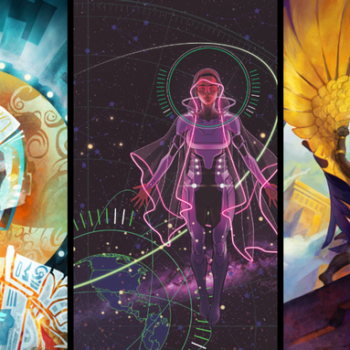
A Bildungsroman for Othered Bodies
- Posted by Augur Blog
- On August 14, 2019
- 2 Comments
- coming of age, jonny appleseed, son of a trickster
By Maryam Gowralli
I would hazard to say that to most readers, the coming-of-age genre, also known to literary critics as the Bildungsroman, is familiar. By definition, the genre revolves around a protagonist who undergoes a journey from youth to adulthood. Such journeys lead to an individual’s moral and spiritual education, and ultimately, symbolizes the formation of actualized identity and societal progress.
Yet in recent years, there has been a much needed and significant reappraisal of coming-of-age narratives. Indigenous, queer, and racialized authors continue to challenge Eurocentric philosophical ideas regarding the linear progression of life and the methods of gaining knowledge. In these narratives, the merits of social integration involve a different tenor as many minorities undergo struggles between individual identity, cultural pressures, and Eurocentric idealizations. In this respect, coming-of-age themes are intrinsic in helping us understand the lived experiences of marginalized bodies, particularly as we continue to engage with different worldviews.
By challenging our understanding of the individual and society, not only are tropes re-evaluated but so are our reading practices. This is especially true as we enter a technological landscape where Othered bodies appear increasingly intimate, vibrant, and visualized, while also digitized, distal, and different.
So I ask, what does it mean to be a marginalized subject or citizen of society from a self-actualizing or self-rebirthing space? What does it mean to challenge the coming-of-age literary canon?
For some like Joshua Whitehead, it means complicating the reading experience and traditional Western understandings of linear time and space. In Whitehead’s debut novel, Jonny Appleseed, Jonny’s life as a Two-Spirit Indigiqueer person is imagined through a series of memories surrounding his childhood, all the while sequentially moving in and out time to discuss the problems he faces in the present. This structure not only challenges the concept of a linear progression as an idealized system but also prioritizes Indigenous epistemology by actively embodying its circular practice from a literary perspective.
Similarly, cultural epistemology is brought to the forefront in assertive and fantastical ways, such as in Eden Robinson’s Son of a Trickster. By including Haisla cosmology and emphasizing it within her world-building narrative, Robinson changes what it means for a teen to enter into broader society. Convergences occur regarding what cultural world one deems as necessary to embody and by which cultural rules live, and many times there are fluctuations between the two.
Meanwhile, Piece of My Heart: A Lesbian of Colour Anthology also constructs a reclaiming of identity through open proclamations of coming-out stories as physically manifested by the texts themselves. To these women, it’s not about rejecting the ideologies that currently exist, but it’s about refashioning self-actualization without the interference of mainstream canon. Editor Makeda Silvera emphasizes the importance of rejecting such stories as being singularly literary, educational or for entertainment. Rather, these individuals reclaim their power by actively creating their identities in an increasingly globalized and digital world. As such, Piece of My Heart experiments with what it means to psychologically come-of-age.
The coming-of-age narrative will always be a tried-and-true staple in the literary world, and it is invaluable for its ability to engross readers through emotional depth and understanding the natural experiences that change our perceptions throughout life. But we have to continue to push away from the limiting imaginations found within Eurocentric models. This can only be done by encouraging coming-of-age narratives that invoke empathy and cultural understanding to help readers recognize the global reality of others, different and similar, to ourselves.
MARYAM GOWRALLI has a BA in English Literature with Distinction from the University of Calgary. She was an editor for The Quill Magazine and NōD Magazine, and produces a scattering of published poetry. Her works tend to be inspired by her diasporic/hybrid crossroads as a Canadian woman of Trinidadian-Indian and Indonesian descent. Find her works at The Waking, Untethered Magazine, and elsewhere.




2 Comments